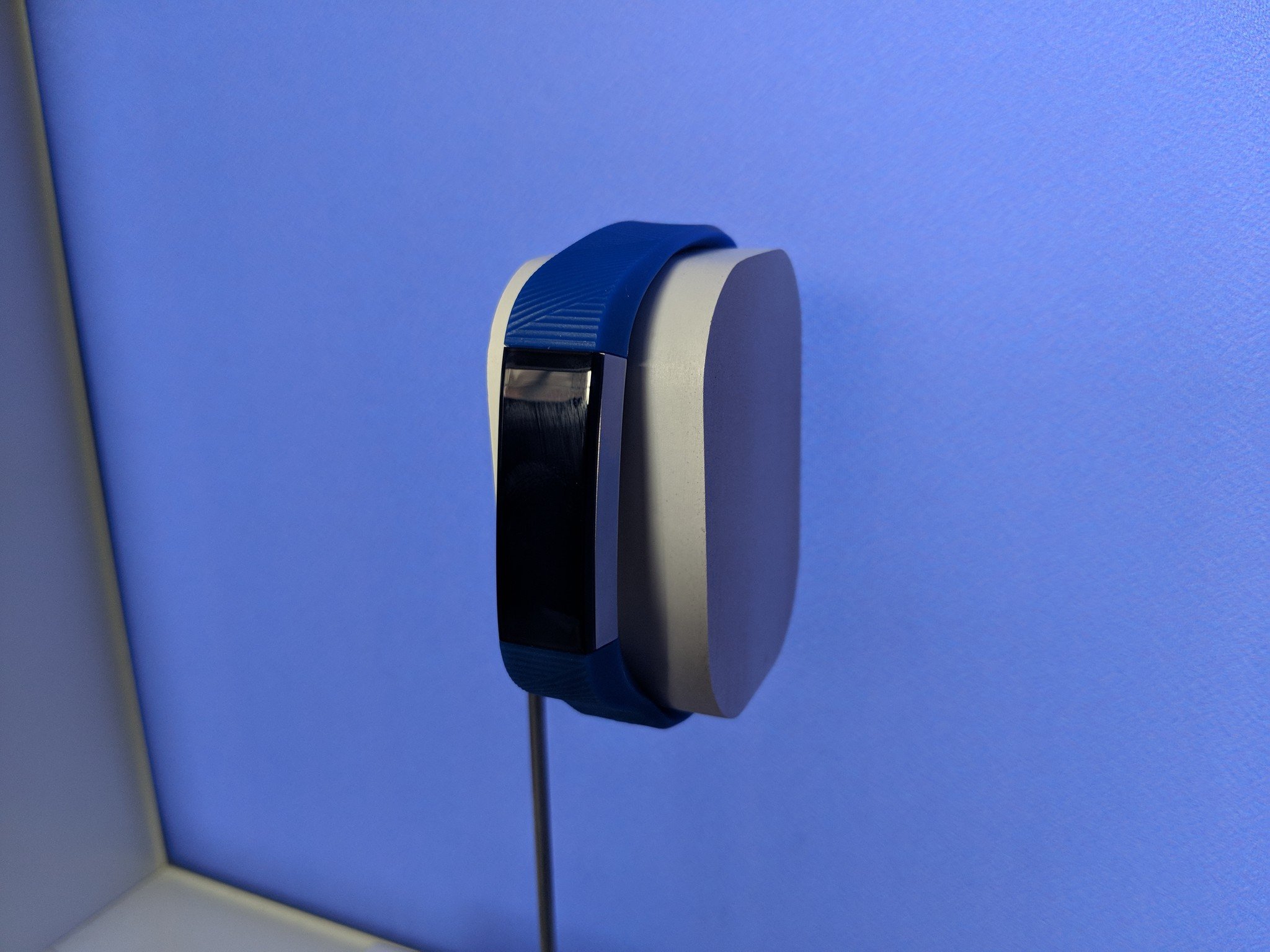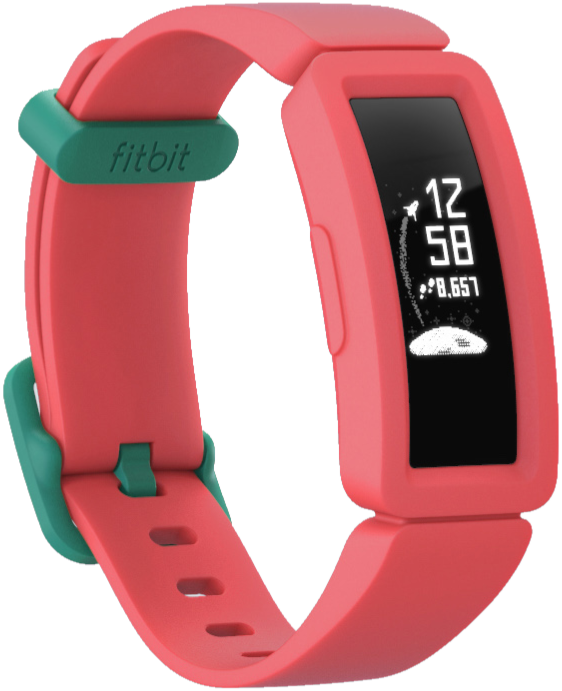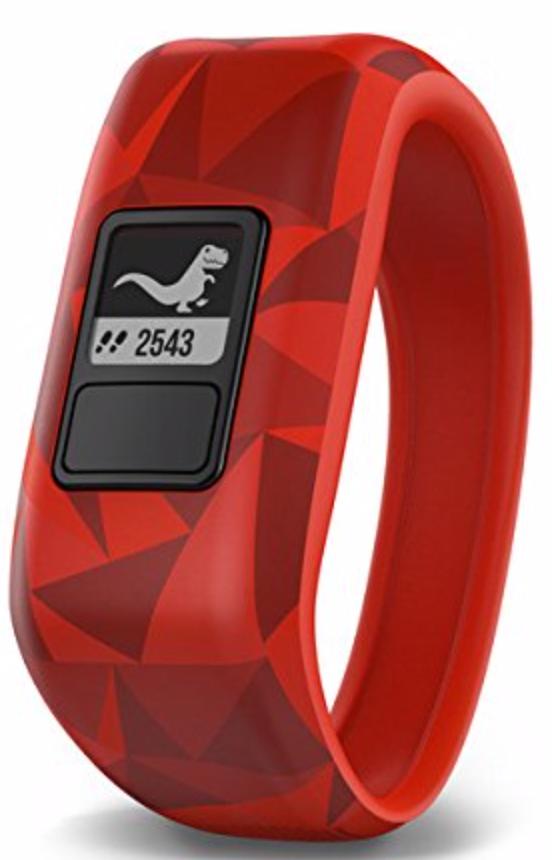Fitbit Ace 2 vs Vivofit Jr 2: Which kids fitness tracker should you buy?


Tons of features
Fitbit is a trusted name in the fitness tracker industry, and the Fitbit Ace lets you and your kid keep track of their activity each and everyday. The fantastic Fitbit ecosystem has a parent and kid view allowing you to manage and track your kids important data, while your kid has access to a more simple version of the app to see their progress.
Pros
- Distance tracking
- Calories burned
- Fitbit ecosystem
Cons
- Works best if your kid has a smartphone

Kid-friendly design
The Vivofit Jr 2 has a tons of vibrant kid-friendly designs that are guaranteed to make your kid feel like their wearing something special. Parents can assign chores, tasks, and other activities through the parents controlled app, but the Vivofit Jr 2 only tracks a few metrics like steps and sleep.
Pros
- Up to 50 meters water resistance
- Kid-friendly designs
- Parents can assign tasks, chores, and activities
Cons
- No calorie tracking
Getting an activity tracker for your kid can not only help you better understand their current activity level, but it can also help you teach your children valuable skills, like realistic goal setting, a commitment to a healthy lifestyle, and also how to take care of an expensive device.
The super kid-friendly and simpler Vivofit Jr 2 is a tracker that excels at helping parents plan and schedule their kid's time, making it great for younger children that require more structure. The Fitbit Ace 2 takes a little more of a hands-off approach and is most likely better suited for preteens or teenaged children.
The important specs
Fitbit Ace and Vivofit Jr 2 both take different approaches to the wearable tracker. The Fitbit Ace acts like all the company's other trackers, having a tap-on display, tracking all the metrics (steps, calories, sleep, and more) you'd expect, and has a 5-day battery life that means you'll need to make sure your kid charges the Ace every so often.
The Vivofit Jr 2 takes a simpler approach to a children's tracker, by making it a device that kids can mostly put on and leave it alone. It has a replaceable battery that should last about a year, and the major metric (almost only) it tracks is steps per day.
| Header Cell - Column 0 | Fitbit Ace 2 | Vivofit Jr 2 |
|---|---|---|
| Size | Fits wrists 125mm - 161mm | Fits wrists up to 170mm |
| Battery | Rechargeable (5-day charge) | Replaceable (CR 2016) |
| Water resistance | Up to 50 meters | 5 ATM |
| Step tracker | Yes | Yes |
| Sleep tracker | Yes | Yes |
| Calories burned | Yes | No |
| Sensors | 3-Axis accelerometer and vibration motor | Accelerometer |
| Notifications | Call, text, and email | No |
The biggest difference between the Fitbit Ace 2 and Vivofit Jr 2 is how they handle the app experience.
Fitbit's app infrastructure is pretty great and if you have any other Fitbit technology in your home, the Fitbit Ace 2 will play nicely with it. It's also meant to be paired with a phone, so your child will get more out of it if they have a phone themselves. Fitbit splits its app into two different views — a kids view and a parent view — that lets your child see various metrics but allows the parents to set goals and view all the data the Ace 2 collects.
The Vivofit Jr 2 is more for young children while the Fitbit Ace 2 is better suited for older children.
The Vivofit Jr 2 doesn't give kids any control over a app, but rather leaves it all up to the parents. It's always-on display has the time and steps per day prominently featured, but your child can't see any metrics byond that. When it comes to setting goals or assigning tasks (likes chores or other reminders) the Vivofit Jr 2 does that all trough the parent app. The goals can even provide rewards to give your kid something to work towards.
iMore offers spot-on advice and guidance from our team of experts, with decades of Apple device experience to lean on. Learn more with iMore!
The Vivofit Jr 2 is much less a serious activity tracker, and much more a device that can help you schedule your child's time and help you open up a discussion about the importance of meeting goals and general time managment. I think that makes the Vivofit Jr 2 a much more practical device for children who don't have phones already and are on the younger side.
On the other hand, the Fitbit Ace 2 takes the training wheels off, so the device requires a little more thought than the Vivofit Jr 2. I see the Fitbit Ace 2 being perfect for preteens alike and a great tool for teaching your children how important activity truly is for a healthy lifestyle. It offers your child more independence and works much better if your child has a phone to pair with it, so they can track their data for themselves.
When it comes to your child, you know them better than anyone, meaning you can make the call on which tracker to get.

A semi-independent tracker to give to your teen
Fitbit is a trusted name in the fitness tracker industry, and the Fitbit Ace 2 lets you and your kid keep track of their activity each and everyday. The fantastic Fitbit ecosystem has a parent and kid view allowing you to manage and track your kids important data, while your kid has access to a more simple version of the app to see their progress.

Kid-friendly design that gives you control
Letting you set goals and assign tasks to your child makes the Vivofit Jr 2 a great device to balance your child's time between productivity and play time. Tracking steps per day, having a replacable battery, and being rated for up to 50 meters submerging means your child never has to take it off.

Luke Filipowicz has been a writer at iMore, covering Apple for nearly a decade now. He writes a lot about Apple Watch and iPad but covers the iPhone and Mac as well. He often describes himself as an "Apple user on a budget" and firmly believes that great technology can be affordable if you know where to look. Luke also heads up the iMore Show — a weekly podcast focusing on Apple news, rumors, and products but likes to have some fun along the way.
Luke knows he spends more time on Twitter than he probably should, so feel free to follow him or give him a shout on social media @LukeFilipowicz.
